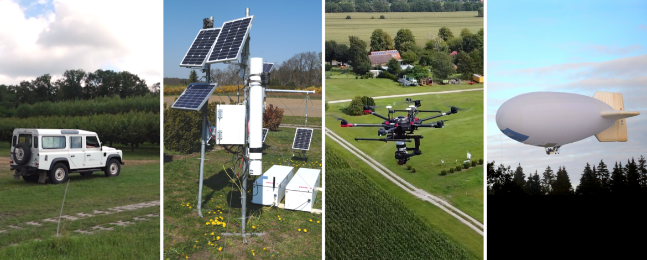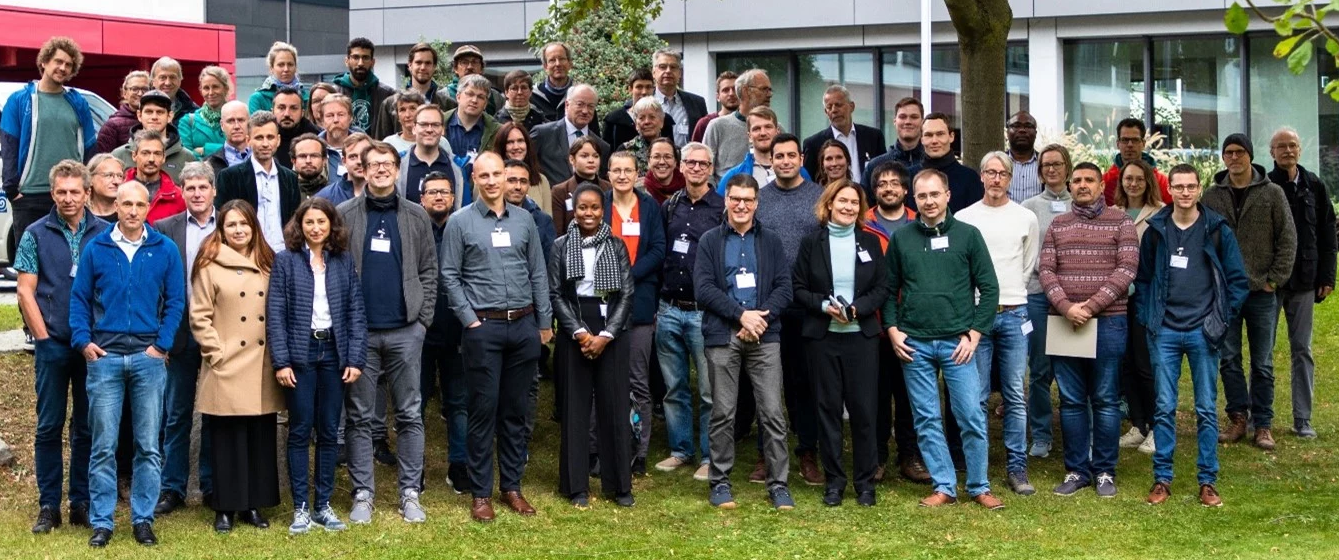The Helmholtz project TERENO (Terrestrial Environmental Observatories) is a large-scale research initiative that aims to investigate the long-term effects of climate change, land use changes and other environmental influences on terrestrial ecosystems and their resources. TERENO was initiated by the Forschungszentrum Jülich and comprises a network of observatories located in representative regions of Germany. These include locations such as the Eifel/Lower Rhine Valley, the Alpine foothills, as well as central German and northern German lowland areas.
The aim of TERENO is to collect detailed data and understand processes that are relevant for the development and adaptation of ecosystems. An interdisciplinary approach is being pursued, combining fields such as hydrology, meteorology, biology and agricultural sciences. State-of-the-art sensors, remote sensing technologies and modelling approaches are used to precisely record environmental changes and simulate possible scenarios for the future.
The results of TERENO contribute to the development of strategies for sustainable land and water management and support political decisions. The project also promotes the transfer of knowledge between science, politics and society in order to effectively meet the challenges of climate change and resource utilization.

Scientific / Research services
The TERENO project offers a wide range of scientific services to support environmental research. It provides long-term data and a network of modern measuring stations, including sensors for soil moisture, climate data and greenhouse gases. Researchers have access to observatories, lysimeters, remote sensing technologies and models. Workshops, data portals and technical support promote collaboration and innovation.

Scientific fields
The TERENO project covers numerous scientific fields in order to investigate the effects of climate change and land use changes on terrestrial ecosystems. These include hydrology, soil science, climate research, ecology and geology. Other focal points are water and nutrient cycles, vegetation dynamics, greenhouse gas emissions and the sustainable use of resources.

Facilities / Instruments / Methods
TERENO utilises state-of-the-art equipment and methods, including a network of automated measuring stations to monitor soil moisture, climate data, runoff, groundwater and greenhouse gases. Lysimeter stations enable detailed analyses of water and material cycles. Remote sensing technologies such as drones and satellites supplement the data. Simulation models and digital platforms support data analysis.
TERENO was funded by the Helmholtz Association with €18 million. Operation is borne by the participating centres.
Partners / Cooperation / Networks
Contact
Dr Heye Bogena
Head of research group "Terrestrial observation platforms"
- Institute of Bio- and Geosciences (IBG)
- Agrosphere (IBG-3)
- Institute of Bio- and Geosciences (IBG)
- Agrosphere (IBG-3)
Tereno
The Interdisciplinary Observation Network for Long-Term Regional Impacts of Climate Change on Terrestrial Ecosystems
Zacharias, S., H. Bogena, L. Samaniego, M. Mauder, R. Fuß, T. Pütz, M. Frenzel, M. Schwank, C. Baessler, K. Butterbach-Bahl, O. Bens, E. Borg, A. Brauer, P. Dietrich, I. Hajnsek, G. Helle, R. Kiese, H. Kunstmann, S. Klotz, J.C. Munch, H. Papen, E. Priesack, H.P. Schmid, R. Steinbrecher, U. Rosenbaum, G. Teutsch and H. Vereecken (2011): A network of terrestrial environmental observatories in Germany. Vadose Zone J. 10(3): 955-973. DOI: 10.2136/vzj2010.0139
Bogena, H.R., C. Montzka, J.A. Huisman, A. Graf, M. Schmidt, M. Stockinger, C. von Hebel, H.J. Hendricks-Franssen, J. van der Kruk, W. Tappe, A. Lücke, R. Baatz, R. Bol, J. Groh, T. Pütz, J. Jakobi, R. Kunkel, J. Sorg and H. Vereecken (2018): The TERENO-Rur Hydrological Observatory: A Multiscale Multi-compartment Research Platform for the Advancement of Hydrological Science. Vadose Zone J. 17(1): 1-22. DOI:10.2136/vzj2018.03.0055
Bogena, H., E. Borg, A. Brauer, P. Dietrich, I. Hajnsek, I. Heinrich, R. Kiese, R. Kunkel, H. Kunstmann, B. Merz, E. Priesack, T. Pütz, H.P. Schmid, U. Wollschläger, H. Vereecken and S. Zacharias (2016): TERENO: German network of terrestrial environmental observatories. Journal of large-scale research facilities 2, A52, http://dx.DOBogena, H., E. Borg, A. Brauer, P. Dietrich, I. Hajnsek, I. Heinrich, R. Kiese, R. Kunkel, H. Kunstmann, B. Merz, E. Priesack, T. Pütz, H.P. Schmid, U. Wollschläger, H. Vereecken and S. Zacharias (2016): TERENO: German network of terrestrial environmental observatories. Journal of large-scale research facilities 2, A52, https://dx.DOI.org/10.17815/jlsrf-2-98
Zacharias, S., H. Loescher, H. Bogena, R. Kiese, M. Schrön, … and H. Vereecken (2024): Fifteen years of Integrated Terrestrial Environmental Observatories (TERENO) in Germany: Functions, Services and Lessons Learned. Earth’s Future 12(6): e2024EF004510. DOI: 10.1029/2024EF004510







